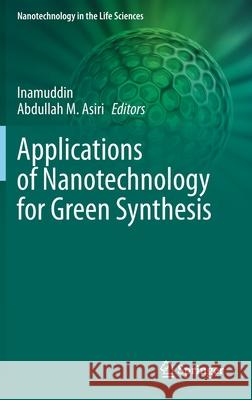Applications of Nanotechnology for Green Synthesis » książka
topmenu
Applications of Nanotechnology for Green Synthesis
ISBN-13: 9783030441753 / Angielski / Twarda / 2020 / 499 str.
Applications of Nanotechnology for Green Synthesis
ISBN-13: 9783030441753 / Angielski / Twarda / 2020 / 499 str.
cena 724,58
(netto: 690,08 VAT: 5%)
Najniższa cena z 30 dni: 693,97
(netto: 690,08 VAT: 5%)
Najniższa cena z 30 dni: 693,97
Termin realizacji zamówienia:
ok. 16-18 dni roboczych.
ok. 16-18 dni roboczych.
Darmowa dostawa!
Kategorie:
Kategorie BISAC:
Wydawca:
Springer
Seria wydawnicza:
Język:
Angielski
ISBN-13:
9783030441753
Rok wydania:
2020
Wydanie:
2020
Numer serii:
000835759
Ilość stron:
499
Waga:
0.88 kg
Wymiary:
23.39 x 15.6 x 2.87
Oprawa:
Twarda
Wolumenów:
01
Dodatkowe informacje:
Wydanie ilustrowane











